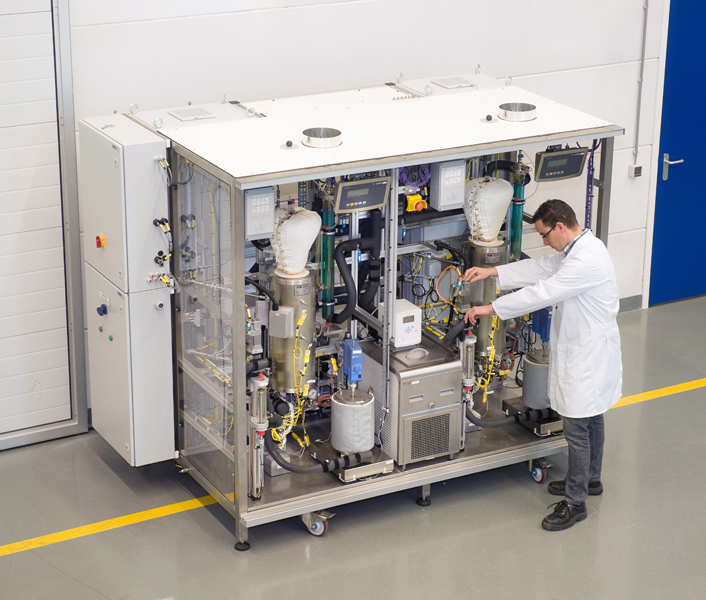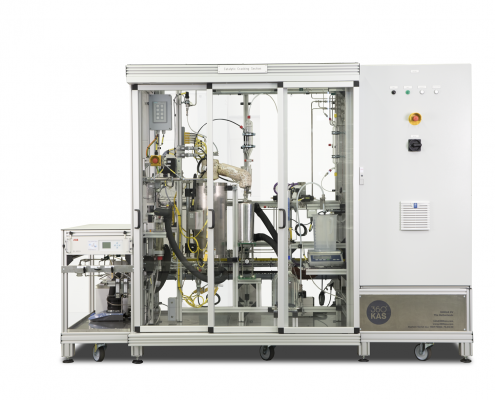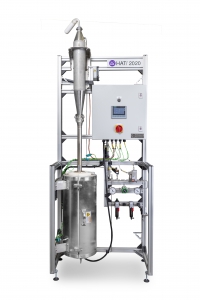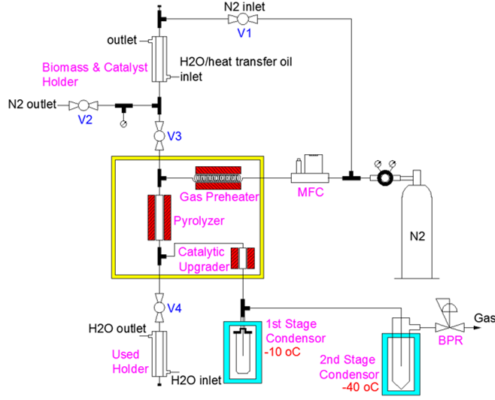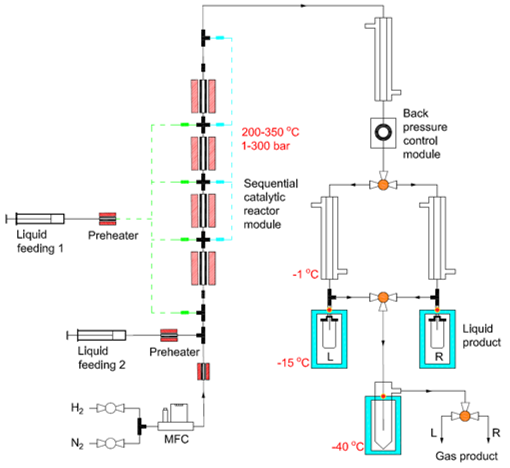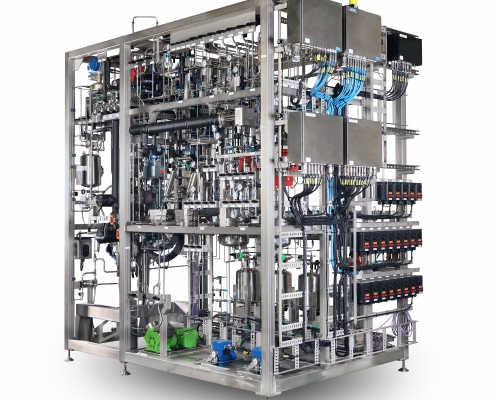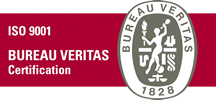Introduction
360°KAS specialises in pilot plants since 1980. We design and fabricate bench-scale test units for research institutes and commercial organisations across the world. For that reason, our turnkey units comply with the highest standards in safety and reliability and are also practical and cost-efficient. The full spectrum of applications we cover encompasses:
- Continuous, semi-continuous and batch
- Dedicated and multi-purpose
- Fixed/ fluidized bed
- Liquid, gas and multi-phase reactors
In consultation with the customer, 360°KAS designs and fabricates pilot plants with the following features:
- High level of safety;
- User friendly;
- Solid reactor design to ensure reliable experiments;
- Solid design to ensure representative samples and analysis;
- Selection of high quality parts;
- Innovative solutions for unconventional parts;
- Design for ease of maintenance.
Through the years we have specialised in bench scale test units for FCC catalyst research and Pilot Plants for polymerisation studies.
Our Offering
Cyclic Deactivation (CD) Unit
During its lifetime a Fluid Catalytic Cracking (FCC) catalyst is subjected to numerous repeated cycles of cracking, stripping and regeneration. In the meantime, the catalyst endures a variety of physical and chemical changes that cause deactivation. When evaluating FCC catalysts at laboratory scale, it is crucial that fresh catalyst is properly deactivated to a equilibrium catalyst (E-cat) sample. 360°KAS has the method to obtain this E-cat sample at laboratory or pilot scale. We call it our Cyclic Deactivation (CD) unit. This is the way to reproduce all the fundamental phenomena that simulate the aging process in commercial Fluid Catalytic Cracking (FCC) operation.
Short Contact Time Riser Test (SCT-RT) Unit
Decisions on catalyst selection are often supported by performance test results from lab-scale simulation. 360°KAS has the method to measure the performance of Fluid Catalytic Cracking (FCC) catalyst by mimicking the behavior of a commercial riser. Therefore, in the lab-scale SCT-RT unit pre-heated oil is injected by a single or double feed line (sequentially or simultaneously) into a fluidized bed of hot FCC catalyst particles. The unique reactor design provides an optimal mixing and cracking at very short and realistic contact times. Followed by fast disengagement of cracking and stripping of the formed products. The latest development is a double feed line to the existing reactor design, which gives the possibility of mixing a biofuel with conventional feedstock.
Hot Attrition Test (HAT) Unit
Fluid Catalytic Cracking (FCC) catalysts can undergo particle breakdown, also called attrition. This leads to the production of fines. Attrition directly affects the loss of catalyst from a FCC unit making it an important factor in the operating cost in a commercial oil refinery. Therefore, it is necessary that the catalyst is sufficiently attrition resistant. To determine this resistance, tests can be done at laboratory scale to gauge the intrinsic attrition propensity of the catalyst. 360°KAS has the method to predict catalyst losses by laboratory testing at temperature conditions similar to commercial FCC operation.
Catalytic Pyrolysis Unit (CoRE Pro)
This patented lab-scale unit offers a solution for pyrolysis of solid and/or liquid renewable feedstock (either waste or model compound). Therefore, the unit uses a heterogeneous catalyst via an in-situ or ex-situ approach under N2 at an atmospheric pressure (catalytic pyrolysis) or under H2 at a high pressure (catalytic hydro-pyrolysis).
Sequential Hydrotreating Unit (CoRE Pro)
This lab-scale unit can be used for (co-)hydrotreating of two liquids (fossil fuel + bio fuel). The sequential catalytic reactor module enables hydrotreating from mild to severe condition. Also, the back pressure control module enables stable pressure and continuous operation. Parallel condensation-separation system enables timely product collection and continuous operation. For that reason, liquid and waxy feedstocks can be processed.
Custom Made Pilot Plants
Our portfolio of custom made pilot plants encompasses for example batch reactors for polymerization studies. It also covers continuous micro flow reactor units for experimental studies on catalytic hydrogenation.

